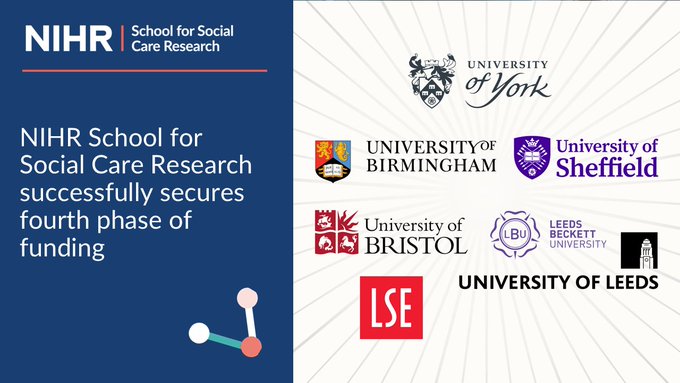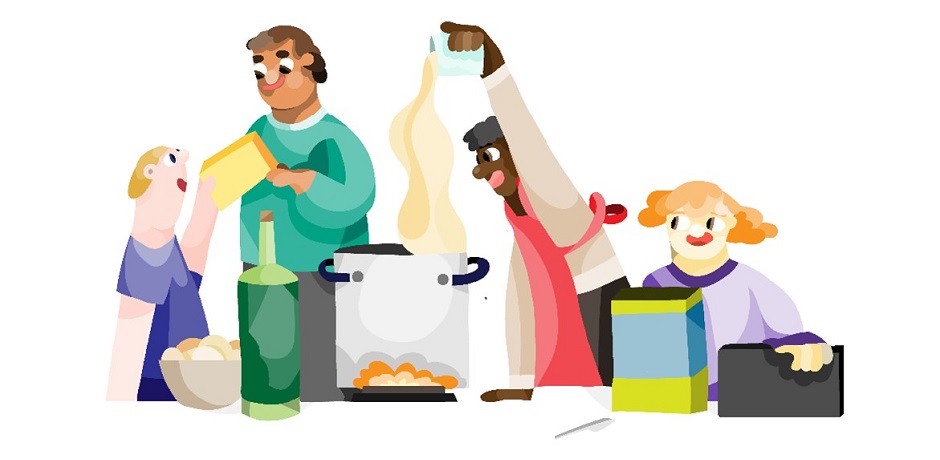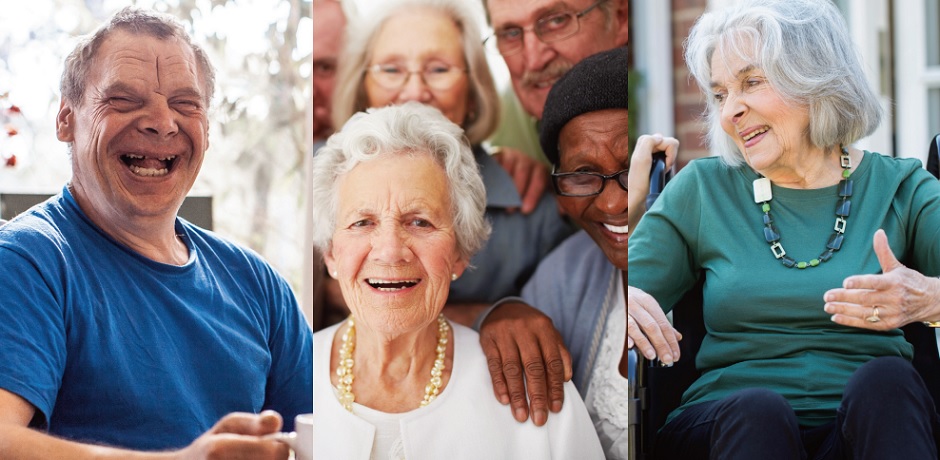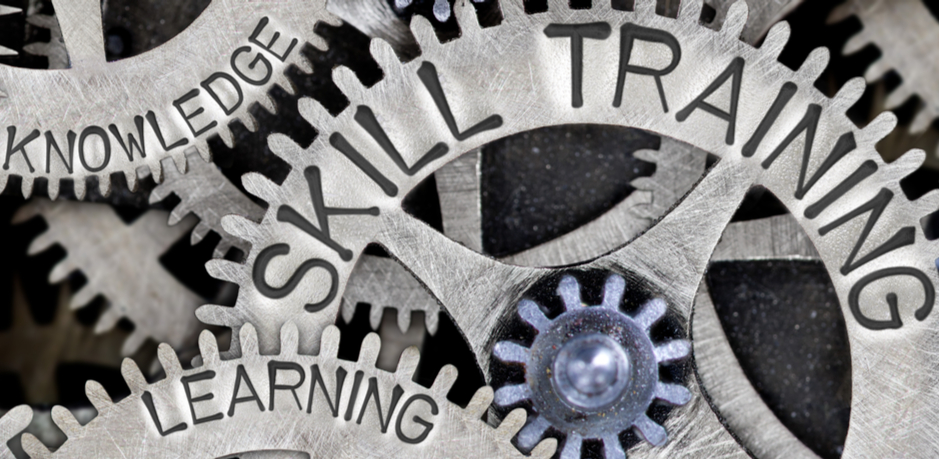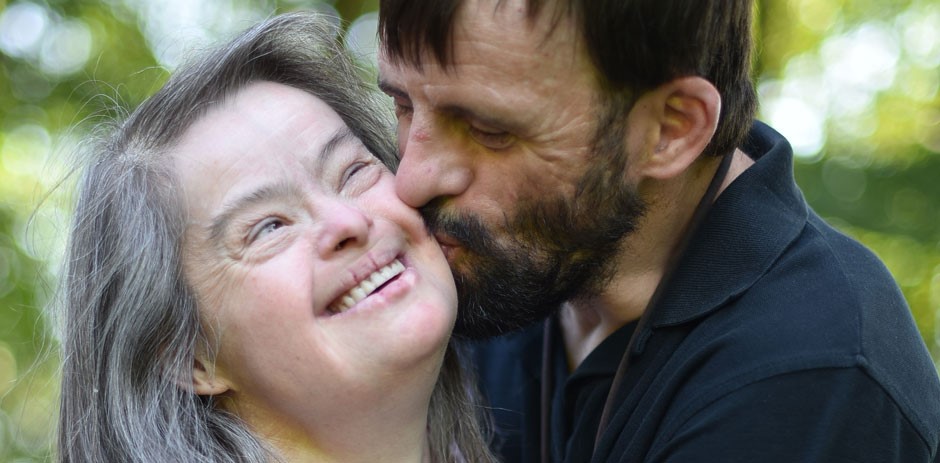)
Loving relationships
Love, and having a loving relationship, is very important to people with learning disabilities, but they still face many barriers, study finds
Specialist dating and friendship agencies play a key role, research suggests
Engaging in loving and sexual relationships with others remains important to people with learning disabilities but they still often find themselves in a position where they are not given the support they need to find, and keep, a partner, despite this being a life goal for many.
A study led by Dr Michelle McCarthy at the Tizard Centre, University of Kent, has explored formal and informal support for adults with learning disabilities to form loving relationships. In-depth semi-structured interviews were carried out with 40 people with learning disabilities to identify what was individually and collectively important to them; interviews and focus groups with 90 people explored how key stakeholders (including people with learning disabilities, their families, and social care practitioners) understand key barriers to support; and data were analysed from 10 dating agencies.
The value of relationships
Participants in the study valued relationships for mutual support, to enhance confidence and self-esteem, for the satisfaction that comes from being able to give care and attention to someone, and/or from the ‘sheer delight of loving and being loved’.
They reported feeling like their lives were ‘diminished’ without loving relationships, and described long-term loneliness. They also expressed how being denied the opportunities they wanted for relationships made them feel socially excluded.
Barriers
The research identified a number of barriers to supporting people with learning disabilities to engage in loving relationships. These included not knowing how to meet a partner and having bad experiences if they tried to follow mainstream routes. The majority of participants felt that they lacked social opportunities.
The under-funding of services was also identified a barrier to full participation in adult life. Tight rotas left too few staff to support people to leave their residential accommodation for social activities and there was a lack of one-to-one support. Staff shift patterns were also cited by all participant groups (people with learning disabilities, staff, parents and dating agency personnel) as being detrimental to the social and personal lives of adults with learning disabilities.
Support
Participants reported mixed experiences in relation to support from family and social care staff, with some having received good advice, emotional and practical support. Some participants found their family members or support staff to be approachable and non-judgemental. Others reported the opposite and that when they sought support, at best it was not forthcoming and at worst, it was ‘downright obstructive’.
Staff were aware of their important role in supporting people with learning disabilities to have relationships, but felt they needed more training and support from managers (and other professionals). However, parents thought staff were often not prepared to take any risks regarding socialising and relationships.
The study found that both social care staff and parents of were supportive of adults with learning disabilities having relationships, but were concerned about abuse and exploitation.
Specialist dating and friendship agencies
No known register of specialist dating agencies for people with learning disabilities was identified. The research found that the ten agencies (out of the eleven approached) participating in the study all gave more support to people than a mainstream dating agency would, including preparation and support prior to any date, practical and emotional support during a date (through chaperones) and support after a date, as well as ongoing relationship support.
Satisfaction with the specialist dating agencies was evident among people with learning disabilities who spoke highly of the staff and volunteers who worked in them and of the social events which were put on for them. Adults with learning disabilities reported increased confidence and self-esteem as a result of their membership of these organisations.
One of the main challenges to all agencies was that they all had more men joining than women. Additionally, LGBT+ people with learning disabilities face more obstacles than most and some agencies struggle to meet their needs.
Full summary findings
NIHR SSCR (2020) Exploring Support for Adults with Learning Disabilities to Find Loving Relationships, Research Findings 122, NIHR School for Social Care Research, London.
View also:
Video – Dating agencies for people with learning disabilities
Video – Love and learning disabilities
Further information
This study was funded by the NIHR School for Social Care Research and led by Professor Michelle McCarthy at the Tizard Centre, University of Kent.
The findings were completed before COVID-19 and have been published to support NIHR SSCR’s requirement that findings from all completed studies are made publicly available.

